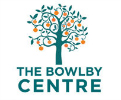The Taught Part of the Course
The taught course has four strands:
- Theoretical seminars
- Clinical seminars
- Life cycle seminars
- Professional development seminars
Theoretical seminars
The theoretical seminars form part of a ‘spiral’ curriculum, in which students are introduced to core themes and theoretical concepts, to which they return in greater and greater depth during all four years of the taught course.
Year 1: The underpinnings of Psychoanalysis and Analytical Psychology, with a particular emphasis on Freud and Jung, are studied in conjunction with seminars on attachment theory, introduced via the pioneering work of John Bowlby, Mary Main, Mary Ainsworth and Daniel Stern.
Year 2: Introduces students to Object Relations and relational theories from Melanie Klein to Stephen Mitchell through Fairbairn, Winnicott, Sullivan and Kohut. There is an emphasis on how each describes the developmental tasks and strategies implemented by the human mind to deal with deprivation and trauma, and we discuss different clinical practice associated with each model.
Year 3: This year concentrates on affect, the body and sexuality, exploring the relationship between social experience and the inner human world of feeling and body awareness, and considering the impact of power and oppression on the development of the emotions, the body, gender and sexuality. Authors studied include Orbach, de Zulueta, Jessica Benjamin and Davis and Frawley.
Year 4: This year builds on previous work to consider more severe disturbances of the self and the communication of dissociation, psychosis and the interface with psychiatry. For the final term students are given a budget to choose their own invited speakers.
Clinical seminars
Clinical seminars meet weekly from the start of Year 2 until the end of Year 4. The seminars cover the discussion of practical issues such as beginning clinical practice and practice issues such as working with transference and counter-transference, defences against anxiety, unconscious communications, dreams and working with difference and diversity. The seminar enables students to share clinical experience and learn from peers in a confidential setting, where boundaries are clear and in which they can be supported and engaged with, without fear of ridicule.
Life cycle seminars
In Years 1 and 2 students observe an infant from birth until 18 months. The seminar meets weekly and integrates theory, observation and subjective experience and links with adult clinical work. These emphasise the centrality of attachment to the development of a healthy sense of self. Key authors studied are: Mahler, Fraiberg, Stern and Brazleton.
“A baby cannot exist alone, but is essentially part of a relationship.”
Winnicott, The Child, the Family and the Outside World
Students begin observing an infant once a week from the second term of the training. The weekly observations provide a unique opportunity for experiencing first-hand the gradual unfolding of the infant’s development. Students find that in these sessions the theoretical material really begins to come alive.
“Observing the process of how Amy and her mother communicated and shared their experience was both a privilege and a joy. It enabled me to see how an infant begins to create a sense of who they are in relation to others around them.”
In Years 3 and 4, child and adolescent development, adulthood, ageing and death are studied. Students trace significant life issues through the different stages of the life cycle: such as sex and sexuality; social inequality; identity; disability; parenting and different models of family; work and play. Clinical issues of working with different age groups are also addressed.
Professional development seminars
This strand of seminars aims to allow students to explore together the issues that are relevant to their stage of development as a therapist. Covering themes as diverse as getting to know each other and dealing with diversity to practicalities of setting up a practice and becoming self employed, to looking after yourself as a therapist or presenting work.
______________________________________________________________________________
